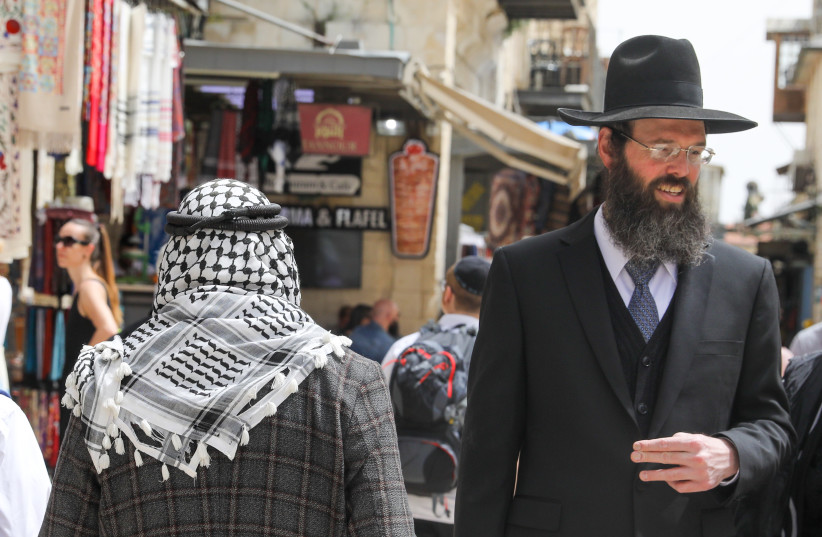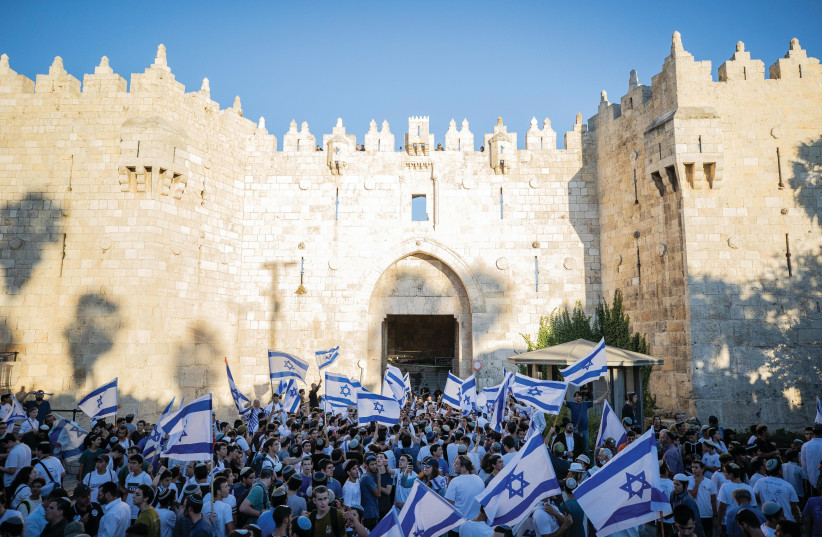A majority of the Jewish population of Jerusalem is either haredi (ultra-Orthodox) or leads a religious lifestyle, according to a new report by Israel’s Central Bureau of Statistics, released ahead of Jerusalem Day.
According to the index, 35% of Jerusalem’s Jewish residents identify as haredi and a further 25% consider themselves to be observant Jews, making up a total of 57% of residents who identify as religious.
In contrast, fewer than one in five residents (18%) identify as secular Jews.
Jerusalem is the biggest city in Israel, with a population of 936,000 as of 2019, which is 10% of the entire population of Israel, according to data gathered by the Jerusalem Institute.
Jews represent a majority in Jerusalem, with around 590,000 Jewish residents accounting for 61.2% of Jerusalem’s population. The Arab population of the capital stands at about 375,000, or 38.8%.

Jerusalem boosted by Russian, Ukrainian immigrants
The Central Bureau of Statistics also published Jerusalem immigration numbers, both from abroad as well as from within Israel.
Jerusalem welcomed 13,900 new residents in 2021, including 3,800 olim (new immigrants) from around the globe. This number was likely inflated by Russia’s invasion of Ukraine, which led more than 21,000 eligible Ukrainians, Russians and Belarusians to immigrate under the Law of Return.
Jerusalem’s growing population numbers are also aided by an above-average birth rate. The number of children per household on average in Jerusalem stands at 3.79, significantly higher than the Israeli average of 2.90.
From within Israel, Jerusalem has seen a large influx of residents from Bnei Brak and Beit Shemesh, a city also mostly populated by religious Jews. Beit Shemesh is also a popular destination for many residents who have left Jerusalem, along with Tel Aviv and Betar Illit, a haredi settlement in the West Bank.
"Jerusalem is in the midst of a revolution."
Jerusalem Mayor Moshe Lion
“Jerusalem is transitioning into a city that has more than a wall at its heart,” Jerusalem Mayor Moshe Lion said in reaction to the bureau’s report.
“It is a thriving and vibrant public space with well-developed and green public transportation that connects all of the city’s neighborhoods into one advanced unit,” he said.
Lion also stressed that the city continues to adhere to its “historical values.”

Will Jerusalem Day celebrations turn violent?
Jerusalem Day, marked this upcoming Sunday, will be celebrated with a controversial flag march that is set to pass through Damascus Gate and the Muslim Quarter to the Western Wall in Jerusalem's Old City, stoking fears that the march could lead to renewed violence between Israeli forces securing the march and Palestinian rioters, who object to Israelis passing through predominantly Palestinian areas of Israel's capital.
Public Security Minister Omer Bar Lev said that he accepted the recommendation of Israel Police chief Kobi Shabtai, who recommended that the march's route is left unchanged “as it has been customary for most years in the past.” Defense officials reportedly advised Prime Minister Naftali Bennett to stick to the planned route, as any last-minute change would be seen as a sign of weakness on Israel’s part.
